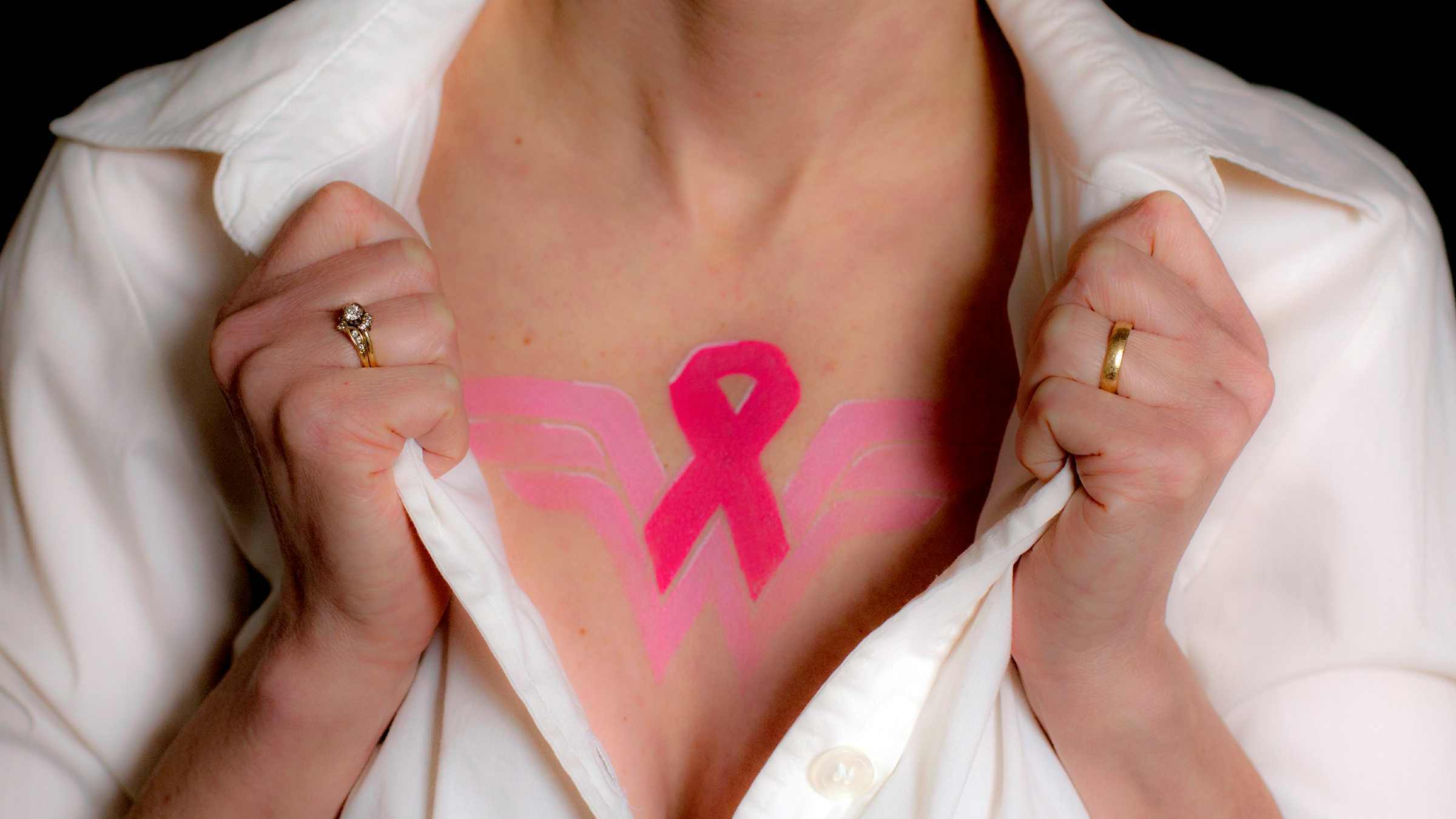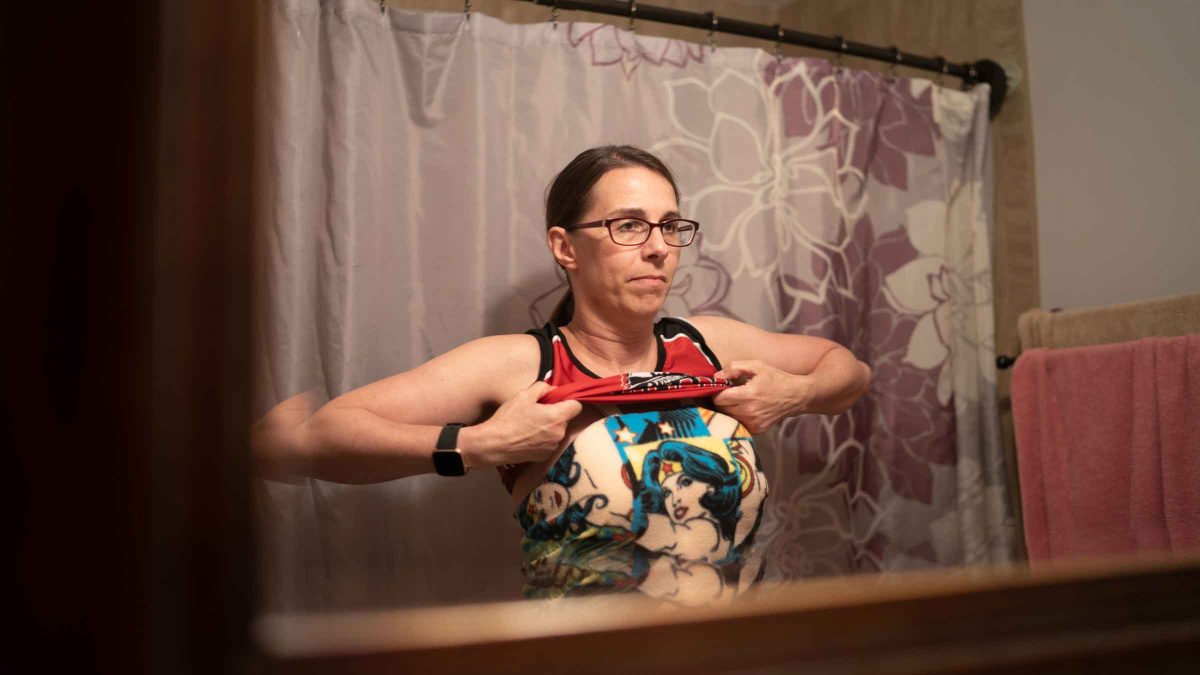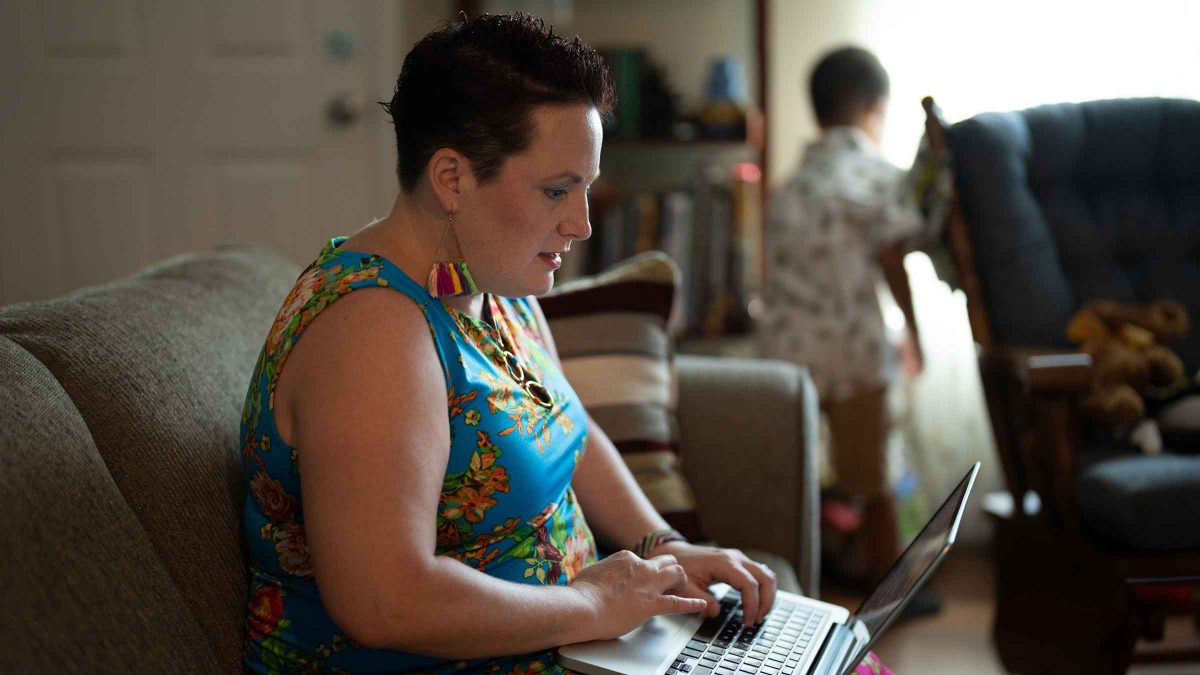6 Tips on Advocating for Yourself Through Breast Cancer

CaringBridge Staff | 06.08.22
No one ever wants to hear the words “breast cancer,” in relation to themselves, or any person they love. But as power and direction can come from words and actions following such a diagnosis, many who have used CaringBridge through treatment for breast cancer were happy to share these tips and suggestions on how to be a good advocate for yourself, or for someone dear to you.
1. Speak of Your Faith
It is important for your medical caregivers to understand your values and how you would like to approach your health journey. If spirituality is one of your values, consider sharing your beliefs with your provider.
A survey of women who started CaringBridge sites after a breast-cancer diagnosis found that 81 percent of patients did not discuss their spiritual beliefs with medical professionals with whom they were working, even when they described their faith as important. This research shows there is opportunity for patients to advocate for their spirituality, too, within a treatment plan.
Study Shows Gaps in Spiritual Care of Women Diagnosed With Cancer | CaringBridge
“My faith has always gotten me through the lows and the highs of life, so when I found out I had breast cancer, I chose to believe God placed these doctors in my life. I put my trust in what they recommended, and also in God.”
Jennifer Ndegwa, mom, wife, daughter of Christian missionaries and teacher, diagnosed with aggressive breast cancer at age 39
A ‘Hakuna Matata’ Hope for Healing After Breast Cancer | CaringBridge
2. Make Knowledge Your Power

Everyone approaches breast cancer differently, with some people diving into self-education on the disease and others focused more on emotional and spiritual aspects. Whatever approach helps surface the information you need to make decisions is the right approach for you and can help set the overall tone for your medical care.
“I wanted to make sure I was knowledgeable on the medical terms so I could be my own advocate and say, ‘This is what I want. This is the best thing for my body and for myself.’”
Cat Thisius, mom, wife, preschool teacher, diagnosed with breast cancer at age 47
A Cancer Patient Turns to a Roller Derby Team for Support | CaringBridge
3. Trust Your Own Process
Everyone has opinions, and often out of a desire to be helpful, even the most loving family members and friends can sometimes share too freely. CaringBridge users who have been on the receiving end of opinions ranging from confusing to adversarial—albeit well-intentioned—offer this reminder: There is no better advocate for you than YOU.
“One of the hardest things I had to deal with was when people offered me their opinions, when their process was different than mine. The best way to advocate for yourself is to walk through your own journey, because it’s your journey.”
Ashley Gleitz, daughter and musician, diagnosed at age 24 with stage two, grade three breast cancer
Fighting Cancer, She Sang Her Way Into Choice and Truth | CaringBridge
4. It’s OK to Ask Questions

Breast cancer treatment is not one-size-fits-all. It’s ok to ask a provider for more information about the treatment process so that you can understand your choices.
“When I found out I had breast cancer, I had to have surgery, but I wanted to wait until my husband had arrived from Kenya. My medical team supported my decision.”
Jennifer Ndegwa
5. Bring Your Own Scribe
CaringBridge users have jokingly said that upon hearing they have breast cancer, they have also temporarily lost their hearing. With emotions and logistics swirling in your head, it is hard to absorb details about things you need to know. So in advance of critical appointments, either in-person or online, consider appointing someone you trust and feel comfortable with to serve as your note-taker. Have a conversation with them ahead of time about how you would like them involved in your appointment and make sure they know your wishes when it comes to treatment.
“My sister came with me to my appointments, and she always took notes on her phone. That let me focus on whatever I was feeling, and also let me just ask questions. Whenever I would look at her notes later, I was always surprised to see something I had missed.”
Courtney Lamb, mom, daughter and RN, diagnosed with stage 3 breast cancer at age 37
Mom’s Approach to Breast Cancer: Keep it Positive | CaringBridge
6. Ask for Help

Having breast cancer can affect nearly every facet of life, from work and home to childcare and finances. But a wide range of resources is available for many patients and family caregivers. The hardest part, though, as confirmed by CaringBridge research, can simply be asking for help. In addition to reaching out to family and friends, consider reaching out to a breast cancer support network to speak to other people who are living with breast cancer. Online peer support is available through the American Cancer Society’s Cancer Survivors Network (CSN) CSN is a community for people with cancer, survivors, caregivers, families, and friends, and a safe place to connect with others who share similar interests and experiences.
9 Ways to Support Cancer Patients (Backed by Research) | CaringBridge
“I looked for every single resource out there for myself and for my kids. I got in touch with the resource specialist at my hospital, who put me in touch with other resources. There are also navigators who can help you advocate.”
Courtney Lamb
Don’t go through your health journey alone
You can stay connected to friends and family, plan and coordinate meals, and experience love from any distance.
All of this is ready for you when you start your personal CaringBridge site, which is completely free of charge, ad-free, private and secure. Don’t spend another minute alone!
What Helped You Advocate Through Breast Cancer?
What tips or suggestions do you have on how to be a good advocate for yourself, or for someone dear to you, when going through breast cancer treatment? Feel free to comment your ideas below and share your stories with the CaringBridge community.
Some things that helped me through my diagnosis were:
A very good friend of mine who had had breast cancer earlier.
My nurse friends/colleagues who went to appointments with me.
My sister’s phone calls.
I was diagnosed with stage 1 breast cancer at age 59. I had gone thru a stressful 4 year struggle when my husband was going thru liver failure. They did get a viable liver and the transplant was successful and then 2 years after the surgery, my breast cancer journey began. I had missed my appt in November and I scheduled another one because we were moving to Maryland. I wanted to be sure I would not put it off for any period of time. God watches over babies and fools. They found a spot that could not be felt. I wanted it out immediately! It was stage one in ductal and I chose a lumpectomy. I feel the stress of my husband’s illness caused the cancer (though the doctors don’t agree). It has been 11 years for my cancer and 13 years and we are both still in good health.
When I had radiation treatments for my breast cancer, I asked to have classical music playing and then I was sometimes able to go into a meditative state.
A psychologist friend reminded me to “breathe in—breathe out—and be in the moment”. It helped me to accept the diagnosis and the feelings that followed. Then, I was able to meet it head-on with clear-headed strength and courage, knowledge and understanding.